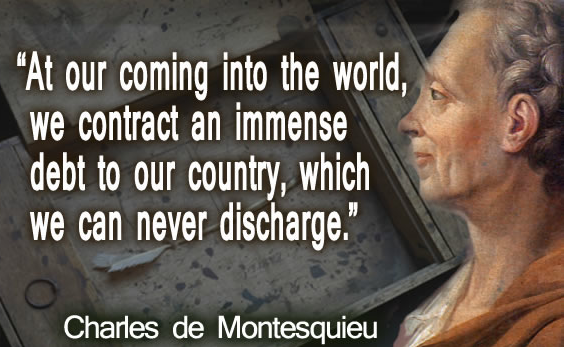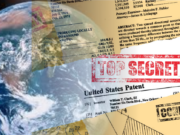
by Mary W Maxwell, PhD, LLB
During the Constitutional convention of 1787 in Philadelphia, the main work consisted of setting up the legislature, not the presidency. There had been an earlier structure, under the Articles of Confederation, which lasted from 1781 to 1787. In it, the states remained independent.
Under the new (1787) plan for a federated government, the choosing of the president would be done not by popular vote but by some individuals appointed by each state, who would gather and discuss good candidates.
How the Electors Choose a President
Alexander Hamilton, writing in the Federalist Papers, to get folks interested in ratifying the Constitution, said presidents should be chosen:
“by men most capable of analyzing the qualities… and acting under circumstances favorable to deliberation….Nothing was more desired than that every practicable obstacle should be opposed to cabal, intrigue and corruption.”
It came to be written in Article I, section 1, of the Constitution that there would be a college of electors. A problem developed in 1800, the year Thomas Jefferson was elected, and this led to
Amendment 12, which is still in force.
Per that Amendment, electors meet in their states (by law in December) and each person writes his ballot and certifies it. These are sent to the president of the Senate for a tallying up in early January.
This year (2016) the public polling is November 8. The day for electors to meet is December 19. The ballots will be opened in Washington, DC, on January 6, 2017. Inauguration day is, as always, January 20.
Most States Have Unimaginative Laws for the Electors
Only two states allow the ballots of their electors to be divided proportionally according to the weight of the vote: Maine and Nebraska. The rest must inscribe on the electoral ballot the name of the winner of their state. I mean winner-takes-all.
So in California, which has 55 electors, all 55 votes will go to Hillary if she has won in the November polls. What if she got 60% and Trump got 40%? It is a winner-take-all, so she gets all of California’s 55 electoral votes. Same for Trump in a state where he has won more than Hillary at the polls.
(I suggest that this shows that the two parties are really one. Isn’t it crazy for a true-blue Dem to enter the name of a Repub on her electoral ballot?)
This year there may be an upset, based on the fact that many citizens are dissatisfied with both candidates. So let’s ask what scope the electoral college has for choosing someone else.
How It Works
There are a total of 538 electors. Why? Because each state has a number equal to its number of Congressional districts (there are 435 of those), plus its two senators (so, another 100), plus 3 for people who live in DC.
Of the total of 538 electors, there are 223 who are “unpledged.” This is because they come from states that do not require the electors to vote in reflection of what happened at the polls. They can vote for anyone. Wow.
In 29 states, plus the District of Columbia, the Electors must pledge – in some cases by oath – that they will cast their ballot for such-and-such a candidate. But only five of those 29 states legislate a penalty for any Elector that ‘defects’ — (NM, NC, OK, SC, WA).
Constitutionality of a State Law
North Carolina goes further, saying, also, that an Elector who votes on Dec 15th for the ‘wrong’ candidate will at that moment be de-certified as an Elector by her state. Very interesting. The constitutionality of that has never been tested. I have a feeling it is unconstitutional.
In Ray v Blair (1952), Ray, the Democratic Party chairman in Alabama, wanted to certify only Electors who pledged.
(Note: it is really the political parties that run this electoral business, and you can imagine what that enails.)
The Supreme Court ruled, in the Ray case, that a state’s allowing a party to do that does not offend the Constitution. They refrained from saying, however, that an Elector is forbidden to break his/her pledge.
Justice Robert Jackson, in dissent, wrote:
“Electors, although often personally eminent… officially became voluntary party lackeys and intellectual nonentities to whose memory we might justly paraphrase a tuneful satire: ‘They always voted at their Party’s call And never thought of thinking for themselves at all.’”
“Party control entrenched by … exclusion of nonconforming party members is a means which to my mind cannot be justified by any end…. The court is sanctioning a new instrument of power in the hands of any faction that can get control of the Democratic [or, presumably, Republican] National Convention.”
Of course that is the norm today. It is Gilbert-and-Sullivan-esque. This goes against the Framers’ idea of an electoral college, in which electors could look around them, and nominate the person they think would fill the office well.
Who May Win This Year, 2016?
Electors are restricted to nominating a person who fulfills the three criteria of Article II: born in US, also resided there at least 14 years, and is age 35 or more.
This means that a huge number of people are eligible to be elected president come January! According to the US Constitution there is no need for the person to have engaged in any campaigning.
So let’s get imaginative here. As I said, 223 souls are free anyway. They have not typically used their freedom, though. In the 57 presidential elections so far in American history up to that point, only 9 individuals sdidanything other than reflect the polls.
“And I never thought of thinking for myself at all.”
But the public will be begging for some kind of breakthrough this year. The public ought to get up off their duff and propose some names for the Electors to think about.
I foresee a difficulty in the states’ electors not being in touch with one another nationally – they have never done this before, but there is email, Skype, etc.
There’s another problem. Often the states don’t decide who their electors will be until after the November polls.
Granted, in a few states when you enter the polling booth you see the name of the elector you are “electing” — her name will appear under the name of Trump or Hillary.
In New Hampshire, where I lived during the 2008 election of Obama, I would have been an elector if Ron Paul had won New Hampshire. My name was not shown, and if I recall, the Republican Party had the right to decide “in due course” which if us would do that job.
Since Ron did not win, I never had the experience of signing an elector’s ballot.
It May Devolve to the House of Reps
Per the Constitution, the president of the Senate opens the envelopes that come in from the Electors. This year he must do it on January 6. He does it with a joint sitting of the two houses of Congress.
If the 538 ballots produce a majority winner, that is someone gets 270 (half of 538 is 269, plus one vote), that person is declared the President Elect and will be inaugurated a fortnight later.
You’d think the envelope-opening would be done with cameras blazing but it’s not. No one publicizes this event. All is hush-hush.
By the way, few Americans know that Joe Biden is the president of the Senate. What? The vice president of the nation hangs out on Capitol Hill? Yes, it’s in the Constitution. (He spends little time there but must vote on a bill if the senators are tied.)
Now let’s say Biden opens the envelopes (all 51 of them) and sees that no one person attained the needed 270 ballots. He must then sort out who the top three were. I imagine it will be Trump and Hillary, plus a mystery person.
He then must ask the House of Representatives to choose a president from those three. (But not all 435 reps do it; they coordinate themselves by state and each state gets one vote.)
That could take forever, I hear you say. True, but by Congressional law they are not allowed to leave the chamber until the deed is accomplished!
Conclusion
In short, the media will surely announce on November 9 that so-and-so is the president elect. They always say this, even though no “president elect” exists until January when the electors’ votes are counted.
I hope some folks will yelp at that and let it be known that the contest is by no means over on the morning of November 9. It hasn’t even begun.
I am hopeful that some electors will announce in advance that they plan to cast a ballot for someone other than DT or HC.
Got to hand it to the Founding Fathers who foresaw just about everything. Give the parchment a kiss, this year of all years!
— Mary W Maxwell is a dual citizen of US and Australia. She is the author of Prosecution for Treason. Please see her articles at GumshoeNewscom.
A Gumshoe article on the Trump-Hillary thing, with many comments from Australians:
https://gumshoenews.com/2016/10/11/trump-or-clinton-which-is-australias-most-dangerous-ally/






























Just to say that I put Montesquieu’s mug on this article to counteract Dee’s putting Hliiary on her article.
i mean there are mugs and there are mugs.
Only in ‘America’!
Ned, why the sarcastic quotes? Do you think we shouldn’t have named the place after the navigator Amerigo Vespucci?
check this out. never mind if it’s “country specific”. it’s not.
https://www.youtube.com/watch?v=d8cq2Fq4Wv8
Come on, Aussies. Don’t be so prejudiced against America. I bet you’d approve of this Italian item, but not the above flag waver. Well, what’s the diff?
https://www.youtube.com/watch?v=aV1orzGDVvg
[…] 19, the electors would find someone else to vote for. Whom? Almost anybody; please see my article here and […]